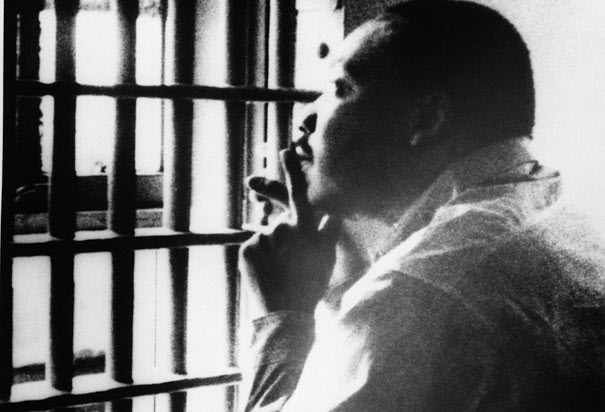
In his Letter from a Birmingham Jail (1963), King applied Amos to his situation, quoting from Amos 5:24. Amos gave his message to the Israelites in 750 BCE. Amos warns the people of Israel that the Lord is displeased with their behavior. People are overly concerned with earthly possessions, bodily desires and there is a shallow adherence to their religious values. Amos tells the people that God will soon judge them for their sins.
"But though I was initially disappointed at being categorized as an extremist, as I continued to think about the matter I gradually gained a measure of satisfaction from the label. Was not Jesus an extremist for love: "Love your enemies, bless them that curse you, do good to them that hate you, and pray for them which despitefully use you, and persecute you." Was not Amos an extremist for justice: "Let justice roll down like waters and righteousness like an ever-flowing stream." Was not Paul an extremist for the Christian gospel: "I bear in my body the marks of the Lord Jesus." Was not Martin Luther an extremist: "Here I stand; I cannot do otherwise, so help me God."
He also quoted Amos in the "I Have a Dream" speech, 5 months after the above letter – Dr. King declared, “we will not be satisfied until ‘justice rolls down like waters, and righteousness like a mighty stream.’”
Here is a musical adaptation of the words from Amos
Amos inspired Dr. King’s entire ministry.
In 1952 or 1953, while studying for his doctorate in divinity, Martin Luther King wrote these notes:
"5:21:24 — This passage might be called the key passage of the entire book. It reveals the deep ethical nature of God. God is a God that demands justice rather than sacrifice; righteousness rather than ritual. The most elaborate worship is but an insult to God when offered by those who have no mind to conform to his ethical demands. Certainly this is one of the most noble idea[s] ever uttered by the human mind.
"One may raise the question as to whether Amos was against all ritual and sacrifice, i.e. worship. I think not. It seems to me that Amos’ concern is the ever-present tendency to make ritual and sacrifice a substitute for ethical living. Unless a man’s heart is right, Amos seems to be saying, the external forms of worship mean nothing. God is a God that demands justice and sacrifice can never be a substitute for it. Who can disagree with such a notion?




